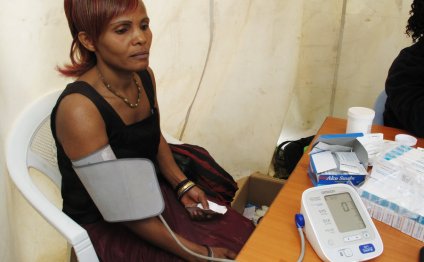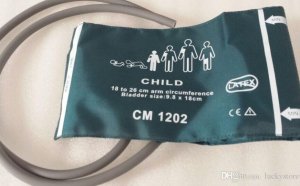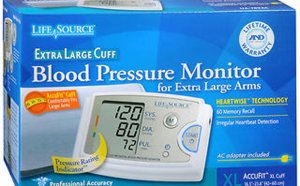
Another name for Blood pressure cuff
Hypertension is silent because you may not realize it’s stalking you. “Most often it does not have symptoms, ” says family physician Richard Ward, MD. If you aren’t getting your blood pressure checked regularly, there’s no sure way to know if it’s within a healthy range. As for “killer, ” that may sound melodramatic. But the damage this condition does to your body is no act.
How Hypertension Harms Your Arteries
When you have hypertension, as your blood is being pumped by your heart, it’s putting too much force against the walls of your arteries, enough force to lead to health problems. If your arteries are narrow or stiffen with age, or if your body carries a lot of water or salt, your blood pressure becomes higher.
“You can think of it as putting excessive pressures on the pipes, ” Dr. Ward says. “The risk of those pipes bursting is the biggest effect.”
Your heart has to work harder when your blood pressure is high. “The pump itself is under increasing amounts of stresses by pushing, ” says Dr. Ward. That extra effort can lead to thickening of the heart muscle, making it more difficult for this organ to do its job. Heart failure can follow. If high blood pressure causes your arteries to harden, the risk of heart attack rises.
How Hypertension Affects Your Whole Body
Your brain is also in peril when your blood pressure increases. Hypertension is the top trigger for stroke, in which a blood vessel in the brain bursts and bleeds, or a blood clot blocks the flow of blood to the brain. Stroke can cause death, or it can cause brain damage and lifelong disability. High blood pressure can also give you brain fog: trouble learning, remembering and understanding. And there is increasing evidence for a link between blood vessel disease and dementia or Alzheimer’s disease.
Your kidneys, too, can deteriorate when your blood pressure rises. The blood vessels in these organs may become weak or narrow, and your kidneys become less effective at their job of filtering out wastes and fluids from your body. Since too much water in your body will in turn raise your blood pressure, it’s kind of a lose-lose situation. And it explains why hypertension is one of the most common reasons for kidney failure.
Even your eyes aren’t immune to the effects of high blood pressure. When the tiny blood vessels here are damaged or blocked, the result is blurred, distorted, or lost vision.
Both men and women with high blood pressure can experience sexual dysfunction because of compromised blood flow . You’re also at greater risk of bone loss and sleep apnea.
How to Get the Best Blood Pressure Reading
You shouldn’t be under the weather, fresh from a cigarette break, or burning to go to the bathroom, all of which can affect the measurement. Also remember: “Blood pressures naturally do fluctuate, ” says Dr. Ward. “Feeling unwell or having a really stressful day is the wrong time to take your blood pressure, and may not reflect the accuracy of the reading.”
Relax, keep both feet on the ground, make sure your arm is fully supported, and try not to talk for a few minutes beforehand. A reading of 120/80 or below is considered normal. If it’s 140/90 or higher, or 130/80 if you have diabetes, it’s important that you talk to your doctor about treatment options. You should be measuring your blood pressure at least every three to six months if you’re in a known high-risk group (less often if you’re low risk).
Share this Post
Related posts
Automatic Blood Pressure Cuff
Amy Dixon has been writing on a local level since 2005, focusing on health and fitness. She is an ACSM Registered Clinical…
Read MoreMicrolife Blood pressure cuff
What are normal results and when should I see a doctor? The following table represents the values (units mmHg) supplied by…
Read More











